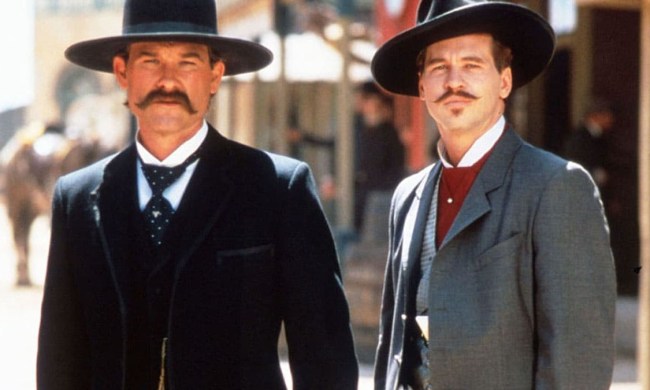Michael Cimino is a film director every cinephile knows about and no one really knows. As the main creative force behind one of the most acclaimed movies of the 1970s, The Deer Hunter, Cimino was the first major Hollywood director to make a film about the Vietnam War. The result was a groundbreaking 1978 film that won five Academy Awards, including Best Picture and Best Director. Yet just two years later, his brief reign at the top came crashing down with the notorious flop Heaven’s Gate, which bankrupted United Artists, was used as a scapegoat by studios to make less risky, auteur-driven films, and made Cimino a pariah in Hollywood until his death in 2016.
In his new book Cimino: The Deer Hunter, Heaven’s Gate, and the Price of a Vision, author Charles Elton breaks down the many myths and falsehoods surrounding the late enigmatic director. In a conversation with Digital Trends, Elton discusses the challenges involved in separating fact from fiction about a largely elusive figure, the price Cimino paid for sticking to his demanding yet unique vision, and why Heaven’s Gate should be re-considered as a masterpiece of auteur filmmaking.
Note: This interview has been lightly edited for length and clarity purposes.

Digital Trends: What compelled you to write a book about Michael Cimino?
Charles Elton I had written a couple of novels and I couldn’t think of writing another novel. A friend of mine had suggested writing a biography about Cimino. I knew a lot about him but not all the stuff that I subsequently discovered while researching. He is unlike anybody else. I’m not saying he is the greatest filmmaker in the world, but he is one of the most interesting. I find failure more interesting than success. His life didn’t work out the way he would have liked.
Cimino was a legendary elusive figure who was prone to mythmaking and outright lying about even the basic details of his life. What were some of the challenges in separating fact from some of Cimino’s own fiction?
I had some difficulty with that. Sometimes there are two or three versions of the same story in the book, and I don’t really know which one is true or not. There were three kinds of people I interviewed: one kind told the truth, one kind lied, and one kind thought they were telling the truth. There are a lot of people who weren’t telling the truth about him. I was just interested in the people surrounding him as I was about Cimino himself.
The major challenge was there is literally nothing about him out there. There are very few papers that were accessible to me. Cimino had one small box in which there were two drafts of The Deer Hunter script, one draft of Heaven’s Gate, and a couple of letters. That was it. I had to fall back on interviewing people because there were no letters. It made me write the book the way I did, which was my strange journey through Cimino’s life. In a sense, the process was a bit like the reporters trying to find the meaning behind Rosebud in Citizen Kane.
What I’ve done with the book is put the things that I’ve discovered out there and people have to make their own minds up [about him]. I don’t want to editorialize about Cimino.
In the book, Cimino described his experience on Thunderbolt and Lightfoot as the best he ever had on a film set. I found that curious because it’s on that production where he is very deferential to its star, Clint Eastwood, and he is largely well-behaved. Yet that film didn’t advance his career that much, and it doesn’t have his personal stamp on it. You know, it’s not his film, it’s more like a Clint Eastwood film. To be as artistically successful as he was on The Deer Hunter and, to some extent, on Heaven’s Gate, did Cimino need to work without rules or constraints?

You’re absolutely right about Thunderbolt and Lightfoot. I actually love that movie. It might be my favorite Cimino film. Clint Eastwood adored him and they were friends until the end of his life. When he directed
The film didn’t do much for his career. Apart from Don Siegel, there’s almost no director who directed a Clint Eastwood movie who went on to have an incredible career. Eastwood has always taken a lot of chances on writers and directors, and he knows what he can get away with. And he took a chance on Cimino. Eastwood made it very clear he would sack Cimino in a second if he didn’t like what he was doing. To some extent, Cimino had to up his game. He knew that if he behaved badly or ran over budget, Eastwood would get rid of him.
By the time he was making The Deer Hunter and his other movies, he was more of an auteur. The trouble with auteur movies is that it’s hard to sack the director because then you have an auteur movie without an auteur. It’s much, much harder to replace a director with another once you get to that level, and Cimino knew that — he absolutely knew that.
One aspect of the biography I like is that it’s fair to its subject without indulging in too much hero worship. Was this a conscious effort on your part to present him as a flawed but talented director?

Yes. I think he was a flawed man and a talented director. On The Deer Hunter, he behaved very badly, but that doesn’t mean the movie isn’t his triumph. It absolutely is, even if he walked over everybody, even though there were bleeding bodies on the road behind him, it was his triumph. Why do people always expect famous people to be nice? In my experience, they almost never are.
Everybody was critical of Cimino for not being nice, whereas with other famous people, they didn’t get the level of criticism that Cimino received then and later on in life. He seemed to get singled out. I think pulling a movie together, particularly with The Deer Hunter and the ridiculously short pre-production period it had, it is absolutely staggering that he could get it into production within about four months with no written script. That’s unbelievable. He worked harder than anybody else.
Was there anybody involved in The Deer Hunter that you wanted to interview that you couldn’t?
I didn’t bother that much with actors. Generally, actors always love the director and all actors did love Cimino, you know? So I’m not going to speak to actors like Meryl Streep because they will all say what a wonderful experience they had on Cimino’s films. They’ve been interviewed extensively about him already and there was nothing new [they could really] say about him.
The people of interest to me are the editors and the assistants and the secretaries because they are the ones who know where the bodies are buried. There was almost nobody who wouldn’t talk to me. Dino De Laurentiis’ widow Martha, who produced The Desperate Hours and The Year of the Dragon, wouldn’t talk to me, and I never quite understood why she wouldn’t. There were some people I just couldn’t get hold of because I didn’t have the right address or there were conflicts with scheduling. But in terms of people saying “no,” it was only Martha.
The legend around Heaven’s Gate is more well known than the film itself. In covering the making of that film, what sources did you use that went beyond Steven Bach’s Final Cut to construct a more unbiased and neutral account than that book?
Steven Bach’s book is a fabulous, gossipy book, but I always thought there was something self-serving about it. Bach was a very slippery person, and while it’s true in his book that he doesn’t deny culpability, he somehow distances himself from [responsibility] and sort of blames it more on [United Artists’ executive] David Field. Nobody else had told the story other than Bach, so it was good to talk to somebody else like Field who was intimately involved with the movie. I also interviewed Robert Shaw’s daughter Penny Shaw, who was Cimino’s editorial assistant, and Patty Nelson [Cimino’s personal secretary], who filled in the story for me. So some of the framework is based on the Bach book, but a lot of the details don’t come from him, and a lot of my details contradict his details.
Another myth that the book disproves about Heaven’s Gate is that it wasn’t a chaotic production. It was a very professional set.

The production of Heaven’s Gate was meticulously controlled. Cimino had a great first assistant director called Mike Grillo, who worked with Spielberg, and he had a fantastic production team. The film was beautifully shot and made. The only problem was that Cimino was operating on his schedule rather than the studio’s schedule.
Cimino’s life after Heaven’s Gate is largely unknown to most people. What did you discover about this period in his life that surprised you the most?
I put together his life afterward just by interviewing people. When I was talking to Joann [Carelli, Cimino’s producing partner], she always said, “Oh, you’re just going to listen to a lot of lies.” And I said, “Everybody has said horrible things about you and Michael. Can’t you give me the names of some people who loved him? So I can even up the balance?” No, she didn’t. So I tracked down four or five of his friends who really did love him. There weren’t that many people who loved him, but this lot did. None of them knew each other and he kept them apart. I got from them a good sense of his day-to-day life.
Also, his late-in-life transformation, for lack of a better word, was fascinating. I was very lucky to find a woman who mentored him in the cross-dressing world. That was surprising because nobody really knew what was happening, except something clearly was happening.
Finally, I was worried that after Heaven’s Gate, Cimino’s life would just be a depressing downhill trudge. In some ways, it was a depressing downhill trudge, but it was interesting to explore what happens to people like Cimino when their lives fall to pieces. To some extent, there was a kind of uplifting ending with Heaven’s Gate being rediscovered [as a misunderstood movie] by critics and fans. But ultimately, it was sad what happened to him.
What do you want your readers to take away from your biography of Michael Cimino?
That he was a brilliant director. He may have behaved monstrously, but he wasn’t really a monster. He was the product of his ambition, his talent, and his drive, and those three things were also partly his downfall. Often for people, their best qualities are also their worst qualities at the same time. And that uncompromising thing he had did sort of destroy them in a way. That’s why the subtitle of the book is “The Price of a Vision” because his ambition to achieve that vision cost him dearly.
You can purchase Cimino: The Deer Hunter, Heaven’s Gate, and the Price of a Vision on Amazon, Barnes & Noble, and other major booksellers. For books like this one, please visit the ABRAMS website for more biographies on leading entertainment figures of the past and present.



